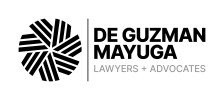Online enforcement of intellectual property rights in the Philippines: A balancing act
14 September 2024

The internet presents a myriad of challenges for IP rights holders. Arjel P. de Guzman explains the efforts the Philippines has undertaken to safeguard those rights.
In the age of the internet, the digital realm has become a fertile ground for the creation, distribution, and consumption of intellectual property. However, this digital frontier also presents a myriad of challenges for IP rights holders, as unauthorized access, copying, and distribution can occur with relative ease. To address these challenges, governments worldwide have been grappling with the question of how to effectively enforce IP rights in the online environment.
The Philippines, as a rapidly developing nation, is not immune to these challenges. In recent years, the country has taken significant steps to strengthen its IP protection framework, including the enactment of relevant laws and regulations to address online IP protection. Like many countries around the world, the country faces significant hurdles in protecting intellectual property rights in the digital age. The rapid evolution of technology, coupled with the global nature of the internet, has made it increasingly difficult to prevent and deter online infringement activities. Identifiable key challenges that the Philippines encounters in enforcing IP rights online include weak enforcement mechanisms, technological limitations, lack of awareness, corruption, and economic factors.
Inherently, the internet is a global network, making it difficult to pinpoint the physical location of infringers. This can hinder the ability of authorities to enforce IP rights against non-resident infringers. In addition, the internet allows for anonymity and pseudonymity, making it challenging to identify and hold accountable those who engage in IP infringement. Meanwhile, the rapid pace of technological advancements can likewise make it difficult for laws and enforcement mechanisms to keep up with new forms of IP infringement.
On the legislative side, it is worth noting that Republic Act. No. 8293, the Intellectual Property Code of the Philippines (IP Code), the primary law defining and protecting IP rights in the country, is quite outdated. The law took effect in 1998 and has no provision relative to digital or online infringement which, at the time, was not that prevalent.
Legal framework for online IP enforcement in the Philippines
The Intellectual Property Code
The IP Code provides comprehensive protection for various forms of IP, including copyrights, trademarks, patents, and geographical indications. It also outlines procedures for enforcing IP rights, including civil remedies and criminal sanctions. However, the IP Code does not provide specific provisions on digital commerce and online infringement. As such, infringement cases may adopt the applicable traditional criminal or civil provisions of the law. Likewise, the IP Code provides no specific liability for platforms, service providers, and intermediaries.
Joint Administrative Order (JAO) No. 22-01, the Guidelines for Online Businesses Reiterating the Laws and Regulations Applicable to Online Businesses and Consumers
In 2022, a collective regulation, Joint Administrative Order (JAO) No. 22-01, the Guidelines for Online Businesses Reiterating the Laws and Regulations Applicable to Online Businesses and Consumers, issued by the Intellectual Property Office of the Philippines (IPOPHL), the National Telecommunications Commission (NTC), and the Department of Information and Communications Technology (DICT), provided a significant milestone in the country’s efforts to combat online intellectual property infringement. This joint order provides a comprehensive framework for the cooperation between these government agencies in addressing copyright infringement activities on the internet.
The JAO establishes a formal mechanism for collaboration between the IPOPHL, NTC, and DICT, ensuring a more efficient and effective response to online copyright infringement. Each agency was required to designate officers responsible for coordinating and implementing the provisions of the JAO and thereby mandated to share information and intelligence related to online copyright infringement, facilitating investigations and enforcement actions.
In the realm of enforcement, the JAO authorizes the agencies to conduct joint operations, such as raids, seizures, and takedown notices, to address infringement activities. Under such an arrangement, the DICT is tasked with providing technical assistance to the IPOPHL and NTC in the investigation and prosecution of online copyright infringement cases.
For IP rights holders, the JAO provides a takedown mechanism in the event that an individual’s intellectual property rights are being infringed by unauthorized sellers or merchants online. In such cases, the IP rights holder may submit a takedown request to the concerned online platform to take down the infringing goods or online content. In the event that the online platform fails to respond to the takedown request, the IP rights holder may notify the IPOPHL for appropriate action.
IPOPHL Memorandum Circular No. 2023-025
In 2023, the IPOPHL issued Memorandum Circular (MC) No. 2023-025 which provides for the Rules on Voluntary Administrative Site Blocking. The circular took effect earlier this year providing a more expedited process for the blocking of a pirate website through a voluntary mechanism with internet service providers (ISPs).
Under the circular, an IP rights holder may file an application before the IPOPHL’s IP Rights Enforcement Office (IEO) for the issuance of a Request to an ISP to Block or Disable Access to Websites (Blocking or Disable Access Request) against a pirated website. The circular defines a “pirate website” as a website that has the primary purpose or effect of infringing copyright or facilitating copyright infringement and/or that contains goods, materials, or contents which are made, produced, or replicated, without the consent of the copyright owner, right holder, or person duly authorized by the right holder.
The Blocking or Disable Access Request issued by the IEO to the concerned ISP includes a directive to take one or more of the following steps to disable access to the pirate website:
-
Domain Name System (DNS) blocking with respect to all Domain Names where the infringing online location operates;
-
IP address blocking or re-routing with respect to static IP addresses for infringing online locations;
-
Uniform Resource Locator (URL) blocking of the target online location and their domain names; or
-
Any other alternative technical means for disabling access
Upon compliance, the ISP concerned is required to submit, within a period of five calendar days from implementation, a written notification to the IEO, stating the action it has taken to implement the site blocking.
The Internet Transactions Act
Enacted in 2023, Republic Act No. 11967, or the Internet Transactions Act of 2003 (ITA), aims to regulate the use of the internet for conducting commercial transactions like e-commerce by e-marketplaces, online merchants, digital platforms, e-retailers, and third-party platforms. The new law provides rules to regulate e-commerce to protect online consumers and uphold IP rights.
One salient aspect of the law is the attempt to bridge the gap brought about by the cross-border nature of internet transactions, where one of the parties is located outside the Philippines. The ITA provides for an extraterritorial application of the law which as it applies to persons who, while not physically present in the Philippines, are engaged in e-commerce and avail of the Philippine market to the extent of establishing minimum contact therein. Under the ITA, a party is deemed to have minimum contacts in the Philippines if it allows users in the Philippines to access and use a digital platform and to exchange information, goods, or services while in the Philippines.
In the realm of infringement and online enforcement, the ITA offers an important breakthrough by providing subsidiary liability for e-marketplaces and digital platforms. Under the law, the e-marketplace or digital platform that facilitated the internet transaction subject to a civil action or administrative complaint shall be subsidiary liable to the online consumer if, among others, it failed, after notice, to act expeditiously in removing or disabling access to goods or services that either infringe on another's intellectual property rights or is subject to a takedown order by an appropriate government agency.
Challenges and the Future Ahead
Despite the positive aspects of the recent legislation and government effort to provide avenues for IP rights holders to curtail infringement and enforce their rights, several challenges remain in the online enforcement of IP rights in the Philippines.
The country may need to invest in additional resources and training to ensure effective online enforcement of IP rights. This includes technical training and know-how to better understand and equip both regulators and enforcement bodies to battle schemes that are directed toward IP violations in the digital sphere. As the country has been witnessing recently, the rapid and exponential evolution of technology can make it difficult to keep up with new forms of IP infringement. The government’s investment in the necessary tools and technologies to assist in the investigation and prosecution of IP infringement cases is thus crucial.
Addressing cross-border IP infringement requires international cooperation, which can be challenging due to differing legal frameworks and enforcement practices. It is a positive indication that the Philippines, especially the IPOPHL, has been exerting a conscious effort in coordinating with foreign countries and international organizations to develop harmonized approaches to online IP enforcement.
The online enforcement of IP rights in the Philippines is a complex issue that requires a multifaceted approach. Significant legislations represent positive steps forward in addressing these challenges, but more work needs to be done to ensure effective protection of IP rights in the digital age. Public education campaigns can equally help raise awareness of IP rights and the consequences of infringement. By addressing the challenges and leveraging the opportunities presented by online and digital infringement, the Philippines can establish itself as a leader in online IP enforcement in the Asian region.
About the author
Arjel P. de Guzman leads the intellectual property and litigation practice at de Guzman Mayuga in Manila. A leading intellectual property practitioner, he is included in Asia IP magazine’s 2024 Philippine IP Experts and was cited for his works in the field of trademarks and IP enforcement. He holds a Bachelor of Laws degree from San Beda University and is currently a candidate for graduation for the WIPO Joint Master’s Program for Intellectual Property and New Technologies at the Jagiellonian University in Krakow, Poland. He is also a Philippine participant in the Joint Japan Patent Office-JIPII Training Course for Practitioners Specializing in Trademarks in Tokyo, Japan, held in 2016, and is a graduate of the IP Panorama Course offered jointly by the WIPO, the Korean Intellectual Property Office (KIPO), and the Korea Invention and Promotion Association (KIPA).








